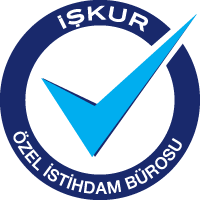Motivation—the invisible engine behind every decision, every effort, and every breakthrough in the workplace. From employee engagement to leadership effectiveness, motivation influences every aspect of organizational performance. That’s why leaders must not only feel motivated but understand, guide, and sustain motivation within themselves and their teams.
Our Leadership Mentoring Program is designed to help leaders explore both their own leadership style and the motivational drivers of their teams through the lens of well-established motivation theories—from the classics to today’s most relevant research.
What is Motivation and Why Does It Matter?
Motivation has been defined as “the set of energetic forces that originate both within as well as beyond an individual’s being, to initiate work-related behavior and to determine its form, direction, intensity, and duration” (Pinder, 1998). In other words, motivation is not a vague feeling—it is a powerful force that can be studied, understood, and nurtured.
Research shows that higher motivation leads directly to stronger performance. Judge & Ilies (2002), for example, found that leaders with strong motivational traits create teams that perform 20–30% better and experience significantly higher job satisfaction.
A Brief Journey Through Motivation Theories
Motivation theories offer leaders a powerful framework to understand what drives people—and how to respond effectively. From Maslow to Deci and Ryan, these theories continue to shape modern leadership practices.
- Maslow’s Hierarchy of Needs (1943) proposes six levels of human needs—from physiological to self-transcendence. Drawing from his work with Indigenous communities in Canada, Maslow emphasized the importance of meaning, community, and purpose—key insights for today’s leaders.
- Herzberg’s Two-Factor Theory (1959) distinguishes between “motivators” (e.g., achievement, recognition) and “hygiene factors” (e.g., salary, job security). Only motivators truly enhance engagement.
- McGregor’s Theory X and Theory Y (1960) shows how a leader’s assumptions about people (lazy vs. self-directed) shape their leadership approach and the motivation levels of their teams.
- McClelland’s Theory of Needs (1961) identifies three dominant motivators—achievement, affiliation, and power—helping leaders tailor their management style.
- Vroom’s Expectancy Theory (1964) explains that people are motivated when they believe effort leads to performance, and performance leads to meaningful rewards.
- Adams’ Equity Theory (1965) emphasizes fairness. Perceived imbalances between effort and reward demotivate employees—even if outcomes are good.
- Hackman & Oldham’s Job Characteristics Model (1976) highlights how meaningful work, autonomy, and feedback fuel intrinsic motivation.
- Locke’s Goal-Setting Theory (1978) shows that clear, challenging, and attainable goals dramatically increase motivation and focus.
- Deci & Ryan’s Self-Determination Theory (1985) argues that intrinsic motivation thrives when three core psychological needs—autonomy, competence, and relatedness—are met.
These theories continue to evolve and guide the design of healthy, high-performing workplaces.
How Our Leadership Mentoring Program Makes a Difference
Our Leadership and Change Mentoring program does more than just explain theories—it helps leaders internalize them and apply them effectively in their day-to-day leadership.
Through personalized mentoring, we support leaders to:
- Discover their unique leadership style and motivational drivers
- Understand how to identify and activate the motivational profiles of team members
- Build a workplace culture that is both high-performing and deeply human
Leaders who understand motivation lead teams that are more creative, more resilient, and more committed. According to Gallup’s 2023 Global Workplace Report, organizations with high employee engagement outperform peers with 23% higher profitability and 18% greater productivity.
Why Now?
In times of change and uncertainty, leaders need more than instincts—they need insight. They need the tools to motivate, connect, and inspire. Understanding motivation isn’t optional—it’s a leadership imperative.
Our Leadership and Change Mentoring program offers a unique opportunity for deep self-reflection, science-backed insights, and real-world application. Leaders who take this journey emerge with clarity, confidence, and a new capacity to empower others.
If you’re ready to transform your leadership and unlock the full potential of your team, connect with us today. Leadership is a journey—let us walk it with you.




